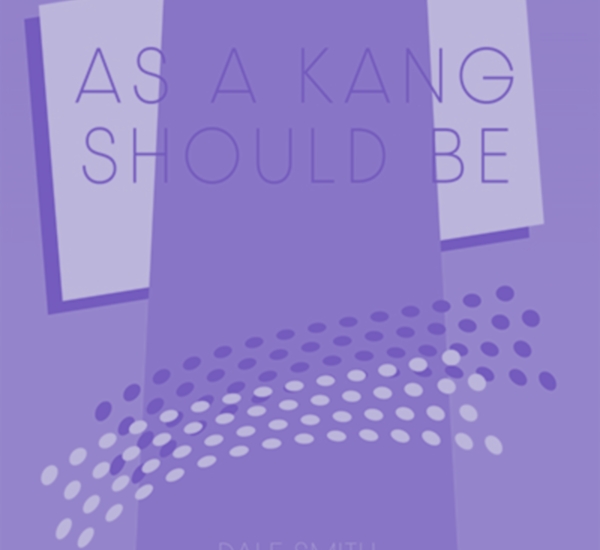Invitation
When I submitted the final version of my Black Archive on Silence in the Library / Forest of the Dead, I thought it was going to be the last one I would write: my style of Black Archive involves a certain kind of engagement with a story, and there were none left I’d had it with. So when Obverse supremo Stuart Douglas asked what I was going to do next, I told him I wasn’t exactly sure. His response was immediate: “Write something for me”. I obviously said yes, and he had a think about which of Obverse’s licensed properties he wanted me to take on. Eventually, he settled on one: Paradise Towers.
Getting the Story
Writers are often told they need to write what they know. That is an ambiguous statement though, with very many different levels of how you know what you know: did you live it? Research it? Ask someone else who knows to tell you about it? Not everyone has the luxury of a completely free choice over all the working parts of their stories, especially those of us working in tie-in fiction. And for writers who are working to an external brief, there is another much more pertinent question: how do I fit what I know into this story?
Paradise Towers is a tricky brief for a writer. It is, more than some other stories from the same era, a closed system. The timeline of it is short: there isn’t a lot of time where the Kang can be old enough to be Kang and the Rezzies and Caretakers young enough not to be dead, to the extent that some fan theories suggest its entirely possible the inhabitants have only been in Paradise Towers for a few weeks before the story starts. The world it sets up is precision honed to tell the story it tells, and doesn’t leave a lot of room for any others. Short stories can play with the elements, but a novel is going to struggle to do something new but not so new it puts off an audience who are there because they like the sound of more Paradise Towers.
My first thought was to try something a little different, to focus on the characters and not stick the action-adventure format of the original. I had an image of a trans man who was living as a Yellow Kang, and a relative who was a Caretaker trying to find them. Because of the distinctiveness of the Kang-speak Stephen Wyatt had invented for Paradise Towers, I liked the idea of writing the story in the first-person, and from the Kang’s point of view. But this would mean a story that didn’t have a traditional villain in it, no monster to be destroyed at the end of the book. I wasn’t sure if this was something that Obverse would be able to sell, so I asked Stuart what kind of story he was looking for. His answer convinced me I was heading in the wrong direction, and so I changed tack: I suggested something inspired by Attack the Block, with a Squonk (a name invented by Wyatt for The Greatest Show in the Galaxy that never made it into the final draft) terrorising the Towers and needing a partnership between a Kang and a Rezzie to eventually defeat it. I wrote up a brief pitch for the story and submitted it to Stuart, who passed it over to Wyatt for his thoughts and approval.
And, very kindly and politely, Wyatt rejected it.
He had picked up on the fact that I didn’t really want to tell that story, that I had found a series of events that felt a bit Doctor Who-ish that I could sneak in little pieces of the thing I actually did want to write into: I was still planning on having my trans Kang and my Kang-speak in the book, but didn’t mention it in my pitch because it took away from the Doctor Who-ness of it all, in my head. Wyatt felt that whilst the story was perfectly serviceable, it didn’t really have a point to it: he had been very pleased with all the different spin-offs of Paradise Towers that had been made so far, and he didn’t want to approve one just for the sake of it when he didn’t think it would be great. And I couldn’t really argue, because he was right about what I’d pitched.
The Pitch
At that point, I could have walked away. The idea had been rejected by the rights holder, so that was essentially that.
Instead, I thought about what I knew. About the Paradise Towers story I wanted to write. That original idea that I was excited about but felt was too different for them to like. I had already given them the same old same old and they didn’t want me to write it: what could it hurt if I suggested the different thing instead? They could still only reject it and I’d be in the same position I was now. So I went back to my original idea, and came up with a pitch for a novel told from the perspective of a Kang and a Caretaker, told in the first person, in their own styles. I thought about the similarities between the time that Paradise Towers was originally written in and the time I was living through, and how the world Wyatt created leant itself to telling stories about now. I worked in some Doctor Who-ish set pieces where they fit my characters and themes, but ditched the Squonk. I wrote what I knew, and pitched the idea to Stuart and Stephen.
They were both much more receptive to the idea, but Wyatt still had concerns: he found Kang-speak hard to sustain in a script without it becoming annoying, and he wasn’t sure that it was be possible to write an entire half of the novel in Kang-speak. Stuart suggested that I try it out, writing a sample chapter just to see how it felt, and that could be shown to Stephen as proof that it was possible. It felt like a sensible idea, so I took the opportunity to invent the Yellow Kang called Downspout and have him explain who he was over a few thousand words. As soon as Wyatt read it, he gave his approval.
Writing the Story
The first thing I needed to do was nail down exactly what the story was. I did this the way I always do: writing a more detailed synopsis that breaks the whole story into scenes and chapters. I knew I wanted the two voices - the Caretaker and the Kang - to interweave their stories, but to feel very different. I already had the idea of the Caretaker’s story being told in the past tense as part of a Regulation 13, Appendix 2, Final Conversation: it occurred to me that the opposite of this was the present tense, something that would fit the Kang’s more loose and flowing sense of grammar. As the Caretaker’s voice was more formal (and with more chance of becoming dull than the Kang’s free association) I decided to split the story so that his scenes were shorter than the Kangs, and then alternate between the two until we reached the end of the book.
Both characters were - in different ways - a lot of fun to write for, and each scene was in essence its own short story that needed to start and end in a defined place. I sped through the actual writing of it, finding Downspout’s voice in particular great fun: the actual amount of Kang-speak defined in the original Paradise Towers - which I had decided would be my primary source of canon - is very limited, so I had the chance to invent new words that still felt like they were part of the same world. I wrote myself a little Kang to English dictionary so I could keep track, jotting down every new coinage as I went.
It was as I neared the final section of the book that I started deviating drastically from the plan. The original idea had been that both stories would end tragically, demonstrating Paradise Towers’ need for the Doctor to unite the disparate tribes in it before they could prevail. But the world I was writing in, the one I wanted my story to reflect, was growing darker. The last thing the world needed was another story of woe for a trans person. I decided to give Downspout a happy ending, adjusting the story on the fly as I wrote to make it happen.
Pretty soon, I was done.
Editorial
Before I submitted my draft to Stuart, I talked to him about the possibility of getting a sensitivity reader to review it. I am not a trans man, and - whilst I did carry out some research so I could be happy I was still writing something I knew - it was still possible I had made assumptions or mistakes that would mean the story didn’t work for trans readers. The position was complicated by the fact that ideally the reader would also have some familiarity with Doctor Who and Paradise Towers specifically. Fortunately, Stuart had a few people in mind and so the draft was duly handed over.
The comments came back from the sensitivity reader, and were overwhelmingly positive, which was a relief. There were some changes suggested, mostly to make the original intentions clearer or little additions that I wouldn’t have thought of myself. Having a sensitivity reader was a wholly positive experience for me, and isn’t something I’d tell anyone to be afraid of. It isn’t a get out of jail free card, but it did give me some reassurance that my idea of the book matched at least one other person’s. And if nothing else, they picked up on more than one occasion of my Kang-speak wandering into inconsistency.
With a rewrite done, the book then went to Stuart Douglas for the final edit.
This again proved to be a relatively straightforward affair, although one thing he did pick up on was that I’d waved around a Checkov’s Gun in the opening chapter of the book that never got fired. He also questioned the placing of my favourite joke in a scene, making me worry for a while that I might need to be a proper writer and kill my darlings. Fortunately, it was his favourite joke too so we managed to find a better place for it. After a few minor tweaks and rewrites, Stuart sent me an email to let me know he’d accepted the final text as complete.
What Happened Next
With the final draft accepted, there wasn’t much more to do, and I moved on to some other projects that had been making my 2025 particularly busy. I got sent a copy of Cody Schell’s spectacularly 80s cover for the book and instantly fell in love with it, and was told the book was off to the printers. There were some discussions about where we could place the book to try and get some reviews for it: hopefully this will pay off as I am very proud of it and would love as many of you as possible to read it, but we’ll have to see. Particularly with a new series of Doctor Who on the horizon, not everywhere is as interested in talking about spin-off novels as I might hope. If they come through, gentle reader, you’ll see them here, of course.
So the book was accepted and announced, and the text sent off to the printers. That is about as done as a book can get … and then we had a thought. The book was being published as Paradise/Towers, representing the two opposing views of Kroagnon’s construction held by the Caretakers and the Kang. But all the other books that Obverse had published - the short story collections Build High for Happiness and Ice Hot - both had titles based on phrases from the original story. We had established a pattern, a pattern that had been broken by Paradise/Towers. In a literal “Stop the presses!” moment, editor Stuart Douglas and myself decided the story needed a different title, one that reflected both its content but also the world it had been written in: As A Kang Should Be.
The main thing I hope for this book, though, is that it reaches the people it was intended for. It’s been a rough few years and doesn’t look to be getting any better any time soon. The very least I can do right now is give them a little visibility, and a happy ending.


